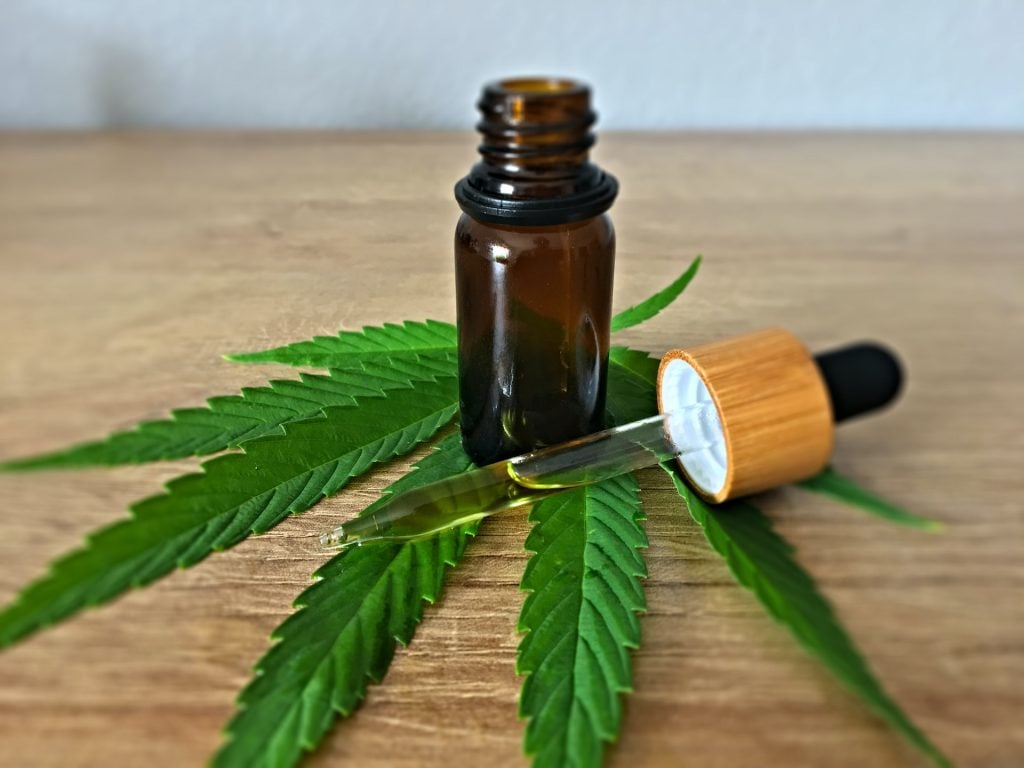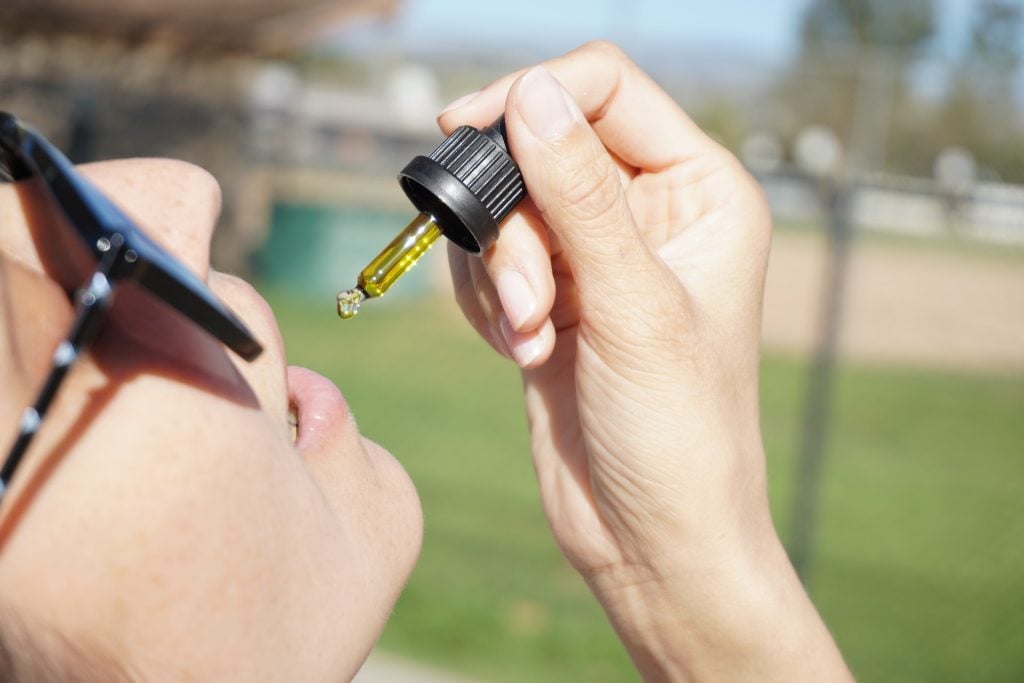In recent years, Cannabidiol, commonly known as CBD, has emerged as a popular natural remedy for various ailments. This blog delves into the myriad benefits of CBD, exploring how this non-intoxicating compound from the cannabis plant can contribute to health and wellness.
While CBD is celebrated for its therapeutic potential, ranging from pain relief to mental health support, it's crucial to approach its use with informed caution. It's important to note that CBD is not a one-size-fits-all solution and should not replace professional medical advice.
Always consult with healthcare providers before integrating CBD into your health regimen, especially if you have existing health conditions or are taking other medications.
Pain Management

CBD has garnered attention for its potential in managing pain, a benefit largely attributed to its interaction with the body's endocannabinoid system (ECS). This system plays a key role in regulating pain, mood, and immune function. CBD influences the ECS, particularly its CB1 and CB2 receptors, which are thought to modulate pain and inflammatory responses. Unlike THC, another well-known cannabinoid, CBD does not produce a ‘high' but rather influences these receptors to potentially reduce pain perception.
Several studies have highlighted CBD's effectiveness in pain relief. A 2018 review in the journal “Frontiers in Pharmacology” noted CBD's significant analgesic properties, particularly in chronic pain management. This is particularly relevant for conditions like arthritis and neuropathic pain, where traditional painkillers may have limited effectiveness or undesirable side effects.
Personal anecdotes and case studies further underscore CBD's potential in pain management. For instance, some individuals with chronic pain conditions have reported significant relief after using CBD oils, citing reductions in pain intensity and frequency. While these accounts are encouraging, they underscore the need for more extensive clinical research to fully understand CBD's role in pain management and to establish standardized dosing and administration methods.
CBD for Anxiety and Stress Reduction

CBD's rising popularity as a natural remedy for anxiety and stress is rooted in its calming properties. Unlike its counterpart THC, which can sometimes exacerbate anxiety, CBD is known for its potential to induce relaxation without psychoactive effects. This unique attribute makes it an appealing option for those seeking a natural approach to managing stress and anxiety.
Scientific research supports CBD's role in mental wellness. A study published in the “Journal of Psychopharmacology” found that CBD significantly reduced anxiety in participants facing a public speaking test. Another notable study in the “Neuropsychopharmacology” journal reported that CBD showed promise in reducing anxiety in people with social anxiety disorder. These findings suggest that CBD could modulate the brain’s response to anxiety triggers.
CBD is increasingly considered as a supplement for mental wellness, particularly for its potential in managing symptoms of anxiety and stress without the side effects commonly associated with pharmaceutical anxiety medications. While CBD is not a cure for mental health issues, its use as a supplementary treatment is gaining traction.
However, it's crucial for individuals to consult healthcare professionals before using CBD for anxiety or stress, especially if they are already undergoing treatment for mental health conditions. The integration of CBD into mental health regimes should be approached cautiously and under professional guidance to ensure safety and effectiveness.
CBD for Sleep Disorders

CBD's potential in enhancing sleep quality has garnered significant interest, particularly for those struggling with sleep disorders like insomnia. The role of CBD in sleep improvement is often linked to its ability to address underlying causes of sleep disturbances, such as anxiety and pain, which can interfere with a person's ability to fall or stay asleep.
Research on CBD's effectiveness in sleep disorders is promising. A 2019 study published in “The Permanente Journal” showed that CBD could help improve sleep and reduce anxiety. The study reported that 66.7% of participants experienced improved sleep scores within the first month of CBD use. Another aspect of CBD's appeal is its ability to regulate sleep-wake cycles, making it potentially effective for sleep issues like insomnia.
When compared to traditional sleep aids, CBD offers a different profile. Most prescription sleep medications, while effective, can have side effects and the potential for dependency. CBD, on the other hand, is generally well-tolerated and is not associated with the same risk of dependency.
However, it's important to note that CBD is not a panacea for sleep disorders and should be used as part of a broader sleep hygiene strategy. Consulting with healthcare professionals is essential before using CBD as an alternative or supplement to traditional sleep aids, ensuring an informed and safe approach to improving sleep quality.
Potential Neuroprotective Properties of CBD

The exploration of CBD's neuroprotective properties has opened new avenues in managing neurological disorders. Research suggests that CBD may have beneficial effects on the brain and nervous system, offering potential relief for conditions like multiple sclerosis (MS), epilepsy, and other neurodegenerative diseases.
One of the most significant areas of research has been CBD’s impact on epilepsy. The FDA-approved drug Epidiolex, which contains CBD, is a testament to its effectiveness in treating severe forms of epilepsy, such as Dravet syndrome and Lennox-Gastaut syndrome. Clinical trials have shown that CBD can significantly reduce the frequency of seizures in affected individuals, offering a new lifeline for those who do not respond to traditional treatments.
In the realm of multiple sclerosis, CBD has shown promise in managing symptoms like muscle spasticity and chronic pain, common in MS patients. A study published in the “Journal of Neurology, Neurosurgery, and Psychiatry” found that a combination of CBD and THC could reduce muscle spasticity in MS patients.
Furthermore, preliminary research suggests that CBD’s anti-inflammatory and antioxidative properties may benefit neurodegenerative disorders like Alzheimer's and Parkinson's disease. While these findings are encouraging, they also underscore the need for more extensive research to fully understand CBD's neuroprotective capabilities and to determine effective dosages and administration methods. The current evidence, however, positions CBD as a potential adjunct therapy for various neurological conditions, highlighting the importance of further exploration in this field.
CBD for Skin Health

The incorporation of CBD into skincare has gained momentum, driven by its anti-inflammatory and antioxidative properties, which are particularly beneficial for skin health. CBD's potential in treating common skin conditions like acne, psoriasis, and eczema has attracted attention from both consumers and researchers.
CBD's anti-inflammatory qualities play a crucial role in acne management. Acne is often a result of inflammation and overactive sebaceous glands. Studies, such as one published in the “Journal of Clinical Investigation,” have demonstrated CBD's ability to reduce sebum production and exert anti-inflammatory actions on oil-producing glands, suggesting a therapeutic effect for acne-prone skin.
Psoriasis and eczema, characterized by inflammation and overactive skin cell production, have also shown improvement with CBD use. CBD may help in reducing the proliferation of skin cells (keratinocytes) and soothe the skin, potentially offering relief from the symptoms of these conditions. A review in the “Journal of the American Academy of Dermatology” highlighted CBD's therapeutic potential for these inflammatory skin diseases.
Moreover, CBD's antioxidative properties contribute to its skincare benefits, helping to protect the skin from environmental stressors and possibly reducing signs of aging. While promising, it's important to note that CBD skincare research is still in its early stages. Consumers are advised to consult with dermatologists before incorporating CBD products into their skincare regimen, ensuring they are used safely and effectively in conjunction with other treatments.
Heart Health and CBD

The exploration of CBD's benefits has extended to heart health, particularly its potential in influencing blood pressure and overall cardiovascular wellness. Recent studies have begun to shed light on how CBD might positively affect the circulatory system, especially concerning hypertension, a major risk factor for heart disease.
A notable 2017 study published in “JCI Insight” found that a single dose of CBD reduced resting blood pressure and the blood pressure response to stress in healthy volunteers. These findings are significant, as high blood pressure is a leading contributor to heart attacks and strokes. CBD's anxiolytic properties may also play a role in its ability to lower blood pressure, as stress and anxiety can be key factors in hypertension.
Beyond blood pressure management, CBD's anti-inflammatory and antioxidative properties might also contribute to heart health. Chronic inflammation is known to be a contributor to heart disease, and by potentially reducing inflammation, CBD could offer protective benefits to the cardiovascular system.
However, it's important to approach CBD's role in heart health with caution. While initial findings are encouraging, comprehensive clinical trials are needed to fully understand its effects and establish safe dosages. Individuals interested in using CBD for heart health should consult with healthcare professionals to ensure it is appropriate for their specific health needs and does not interfere with existing heart medications.
Emerging Research and Future Potential
The landscape of CBD research is rapidly evolving, revealing new and potential benefits. Ongoing studies are delving into its effects on conditions like depression, substance abuse, and chronic inflammation, broadening our understanding of its therapeutic scope.
The future of CBD in health and wellness looks promising, as researchers continue to uncover its multifaceted applications. This progression could lead to more personalized and effective treatments, integrating CBD into various medical and wellness strategies.
As regulatory frameworks evolve and public interest grows, CBD is poised to become a significant component in the future of holistic health and personalized medicine.




